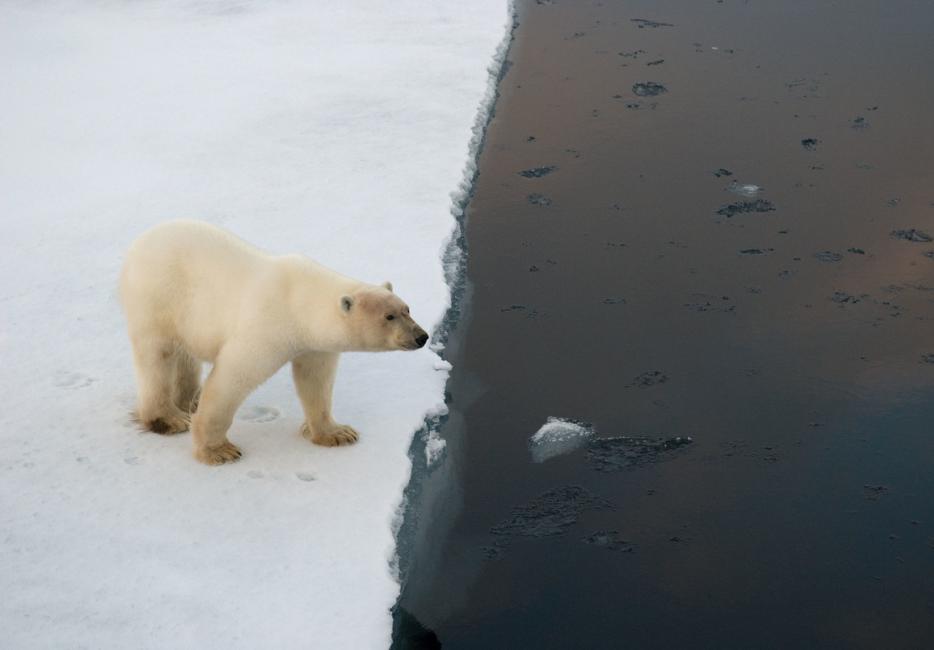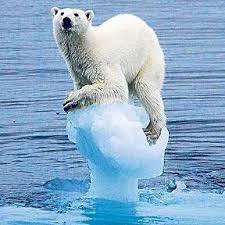
The Sun, a large ball of hot plasma, is close to Earth. Its energy output has decreased over the last five decades. But this is not the only cause of the recent temperature increase. The greenhouse gas levels have also risen rapidly over the same time period. Our climate has seen an increase of about 0.8 degrees Celsius.
One explanation for the warming is carbon dioxide resulting from fossil fuel combustion. This gas is vital to photosynthesis in plants. It breaks down when it absorbs too much heat. Plants will soon die due to the increased levels of this noxious substance in the atmosphere. It will only be microbial living that will take over the world.

The number sunspots found on the surface of the earth is an indicator of solar activity. There are two eleven-year cycles. The sun was much bigger than it is today during the first cycle. However, it will gradually shrink in size over the next few decades. It will eventually turn into an enormous red giant. Its gravity pulls on the planet, and its orbit is affected.
The Sun has a 22 year-long magnetic cycle. It is interesting that the solar cycle does not correlate with the average temperature of lower atmosphere. The question is, "Is the sun becoming hotter?" Well, we don't know for sure, but we do know it is a growing beast.
Ocean currents, as well as the formation of mountain ranges, are other factors that influence our planet's temperature. These are all tied into the grand climate cycle. If the cycle were to alter in the next few year, then there might be an abrupt shift in temperature.
The Earth's tidal force, which is a result of the Earth's relationship to the moon, is another factor. Tide levels will be lower when the Moon is in between Earth and the Sun. Largely, the tides are caused by the oceans bulging towards the sun. However, tides can be high when the Moon orbits far from Earth. Unfortunately, this is not the case for humans.

Another thing that makes the Sun the biggest and most important player in our weather is the mass of oxygen that it contains. This gas is vital to the existence of life on this planet. However, a decrease in its availability will result in it becoming very difficult to sustain. Eventually, plants will become extinct, and only microbial life will be left. Our planet's home will cease to exist.
Lastly, the sun is a main sequence star, which means that it isn't perfect. Although parts of the sun's structure are not perfect, the sun itself is a large ball of hot Plasma. Since the sun's formation, its intensity has increased by about 40%. It is approximately halfway through its lifetime.
Despite its age it still contributes significantly to the climate. Even if it doesn’t get warmer over the next centuries, its outer atmosphere still has a negative impact upon Earth’s orbit.
FAQ
How does human activity affect climate change
Climate change is caused primarily by human activity. According to the Intergovernmental Panel on Climate Change, humans have contributed more than 70% of global warming since mid-20th century.
Burning Fossil Fuels: Burning fossil fuels such as coal, oil, and gas releases carbon dioxide into the atmosphere. This creates more atmospheric CO2, which acts like a "greenhouse" gas, trapping heat and increasing temperatures. This results in higher ocean levels because Arctic ice mellows and causes weather patterns to change around the world, which can lead to severe storms, droughts or floods. These could impact food production and pose a threat to human health.
Deforestation. Trees that absorb atmospheric carbon dioxide from the atmosphere in photosynthesis will be effected by being cut down. Deforestation also raises albedo (the amount of reflected solar radiation that is returned into space) and reduces solar heat absorption by earth's surface, thereby promoting global warming. It also reduces the quality of local air, with deforestation being permanently linked to respiratory problems.
Farming: Animal agriculture accounts for between 14%-18% worldwide's total anthropogenic greenhouse gas emissions. Because of its high methane content, animal waste emits large amounts methane into the atmosphere. Reducing your intake of animal products is an effective way to lower your greenhouse gas emissions. Nitrous oxide can also be released into our atmosphere. This creates smog that harms our respiratory system.
In conclusion, human activity has been drastically impacting our environment for centuries now, but with rapid advances made in technology such as renewable energy sources availability we have started turning our heads towards the future leaving behind carbon-emitting heavy industries results will soon start speaking themselves clearly when we leverage on technology through green innovation paving away toward eco-friendly efforts combatting climate change efficiently keeping everyone safe under prosperous nature purview.
What is the role of individuals and communities in addressing climate change?
Climate change is a major contemporary challenge. It affects all of us and requires our collective attention as well as individual actions to make a real difference.
Individuals play a key role in combating climate change and reducing its effects. A person's everyday behavior can range from cutting down on waste and conscious consumption to making lifestyle changes such as changing to vegetarianism or using public transportation less often and choosing eco-friendly clothing and home decor. They can also be involved in political advocacy, and encourage initiatives within their communities that foster sustainability.
They are also crucial in addressing climate issues on a wider scale. They can adopt policies that reduce emissions. These include reformulating energy models that are based on renewable sources, encouraging efficient infrastructure for bicycle or electric transport, reducing deforestation and encouraging composting systems for waste disposal. Collaboration is crucial for the achievement of this mission.
Moreover, civic education on the threats posed by climate change, as well as on ways to contribute positively towards tackling it needs to be implemented from the early stages of education acquisition throughout lifelong learning opportunities. This will help people become more aware about the issues and to understand how they relate to others who are also affected by global climate change.
Employers have a significant responsibility in combating climate change. Introducing corporate practices that are focused on sustainability and choosing green alternatives whenever feasible will undoubtedly result in positive economic and sociological outcomes.
Individual and community actions combined with policies at the local level, as well as business transformation, will make a huge contribution to addressing global warming. They also help to protect humanity from long term harmful effects resulting from climate change.
How can developing countries and communities cope with the effects of climate changes?
Due to their limited access to healthcare and technology, developing countries and communities are especially vulnerable to the impacts of climate change. Temperature, precipitation, sea levels, and rainfall changes put additional pressure on already scarce resources. Additionally, floods and droughts cause havoc in already fragile ecosystems. Rising temperatures can lead to a decrease in crop yields, which will disproportionately affect poorer communities struggling with food insecurity. Extreme weather events like heatwaves or hurricanes can lead to destruction of infrastructure, displacement of people and further perpetuating economic inequality.
Climate change has long-term consequences. They will lead to continued resource scarcity, extreme poverty, and adverse health effects, including increased incidences of vector-borne illnesses like dengue fever and malaria. A rise in sea levels and extreme weather events will lead to increased flooding. This could put lives at risk in coastal regions, where there is often a lack of emergency services or infrastructure. These risks can be mitigated by reducing greenhouse gas emissions. However, other measures may be required such as better management of freshwater resources or easier access to healthcare facilities that aid in the prevention of diseases like malaria.
What are the current international efforts to combat climate change?
The international effort to tackle climate change has reached a new level of unity and momentum. Countries around the world are increasingly collaborating on ways to reduce emissions, strengthen resilience against impacts, and invest in renewable energy sources.
The Paris Agreement, which has galvanized global action and provides a framework for countries to establish voluntary targets to reduce their emissions, serves as a framework. Additionally, the UN Framework Convention on Climate Change (UNFCCC) is providing political guidance and piloting new initiatives such as carbon market mechanisms.
Also, progress is being made in particular regions. The European Green Deal is an extensive package of legislation that aims at recreating Europe’s economic system with sustainability at its core. Meanwhile, countries on the African continent have committed themselves to the African Renewable Energy Initiative. This initiative aims to increase Africa’s share of global renewable power production.
Along with policy changes, action can be observed across all sectors and industries. Cities are actively moving toward sustainable public transport systems. Society as a whole is moving towards more sustainable lifestyles. Companies invent technologies that reduce carbon emissions. Investors are shifting their capital away to renewables.
The wealthy countries represented under the OECD committee have adopted common standards for reporting national actions on climate change through the Common Reporting Framework (CFR) called the 2021 Guidelines.
These efforts demonstrate the importance of climate action. For any chance of reaching the climate goals set forth by science and international law, government, civil society, & private sector actors must build upon this momentum.
What impact does politics have on global efforts to tackle climate change?
Climate change is a hotly debated issue, which has led to a lot division among countries, governments, as well as individuals. The political positions of various actors have an effect on the implementation and effectiveness of measures to combat climate change. It has been difficult to reach a consensus on the global effort to address this urgent environmental problem.
A majority of scientists agree that climate change caused by humans is real and must be addressed immediately. These politics often hamper global cooperation needed to achieve effective progress in implementing sustainable energy practices.
Most governments are eager to protect their business interests and enforce rules that will limit business activity as much as possible. This is often in conflict with the regulations experts recommend to combat climate change. Without strong commitments by all countries involved and large-scale international action it is difficult for any state or group to adequately address climate changes through legislation.
Differences in power dynamics among countries further complicate gaining full consensus on how best to tackle climate change. Countries with more economic power frequently appoint their own representatives for international negotiations over the environment. This can lead lopsided discussions between countries' perceived interests and those of all other parties. At both the national and international level, there have been extensive discussions about potential side effects of radical changes like geoengineering.
At a grassroots level too, grassroots movements have struggled against powerful opponents including corporate ownerships and well-funded lobbies trying to maintain politically favorable positions for their industries especially when it comes to funding research into alternative forms of energy production or enforcing renewable energy technology mandates such as low emissions targets for vehicles etcetera - meaning individual governments must remain clearheaded about potential rewards and outcomes if they are going actively try to make valid progress on the matter in the question itself instead seeking public favor through short-term gains or even spectacles.
A coordinated effort to reduce our environmental crisis will only succeed if resources are distributed properly and there is no political divide between nations.
Statistics
- According to the 2014 report on Climate Change Impacts, Adaptation, and Vulnerability (page 8) from the United Nations Intergovernmental Panel on Climate Change, governments at various levels are also getting better at adaptation. (climate.nasa.gov)
- features Earth's average surface temperature in 2022 tied with 2015 as the fifth warmest on record, according to an analysis by NASA. (climate.nasa.gov)
- This source accounts for about 10% of all the water that enters this highly productive farmland, including rivers and rain. (climate.nasa.gov)
- The 10 countries with the largest emissions contribute 68 percent. (un.org)
- This source accounts for about 10% of all the water that enters this highly productive farmland, including rivers and rain. (climate.nasa.gov)
External Links
How To
How to make your home more energy-efficient and combat climate change
You can make your home more efficient and reduce your carbon footprint. It will also save you money on your utility bills.
Your home should be properly sealed and insulated. You must ensure that your windows and doors fit properly. If you find drafts around pipes or vents, make sure to add weather stripping and fill in any gaps with caulking around door frames and window frames.
Insulate your ceilings, floors, and walls to increase energy efficiency. Make sure to inspect the attic and any other areas in your home for air leaks.
Lighting can account for as much as 18% of household electricity consumption. Make sure to switch to LED bulbs, which consume up to 80% less electricity compared to traditional incandescent bulbs. You can also save money by installing motion sensors and timers to turn off lights when they are not needed.
The cost of replacing an old furnace or boiler can be reduced dramatically by using newer models that are more efficient. A programmable thermostat can be used to set temperature settings based on the time people are at home and away.
Double-glazing windows can be replaced with better insulation. They also prevent heat from escaping through the glass. Low-flow showerheads are a great option, as they reduce water consumption but maintain adequate pressure.
ENERGY STAR rated appliances are more efficient than non-certified models and can use as much as 50% less power. Don't forget about small details such as unplugging electronic devices like phone chargers or TV boxes when not in use - this could save you a significant amount of energy over time!
These steps can make living at home easier and less stressful.